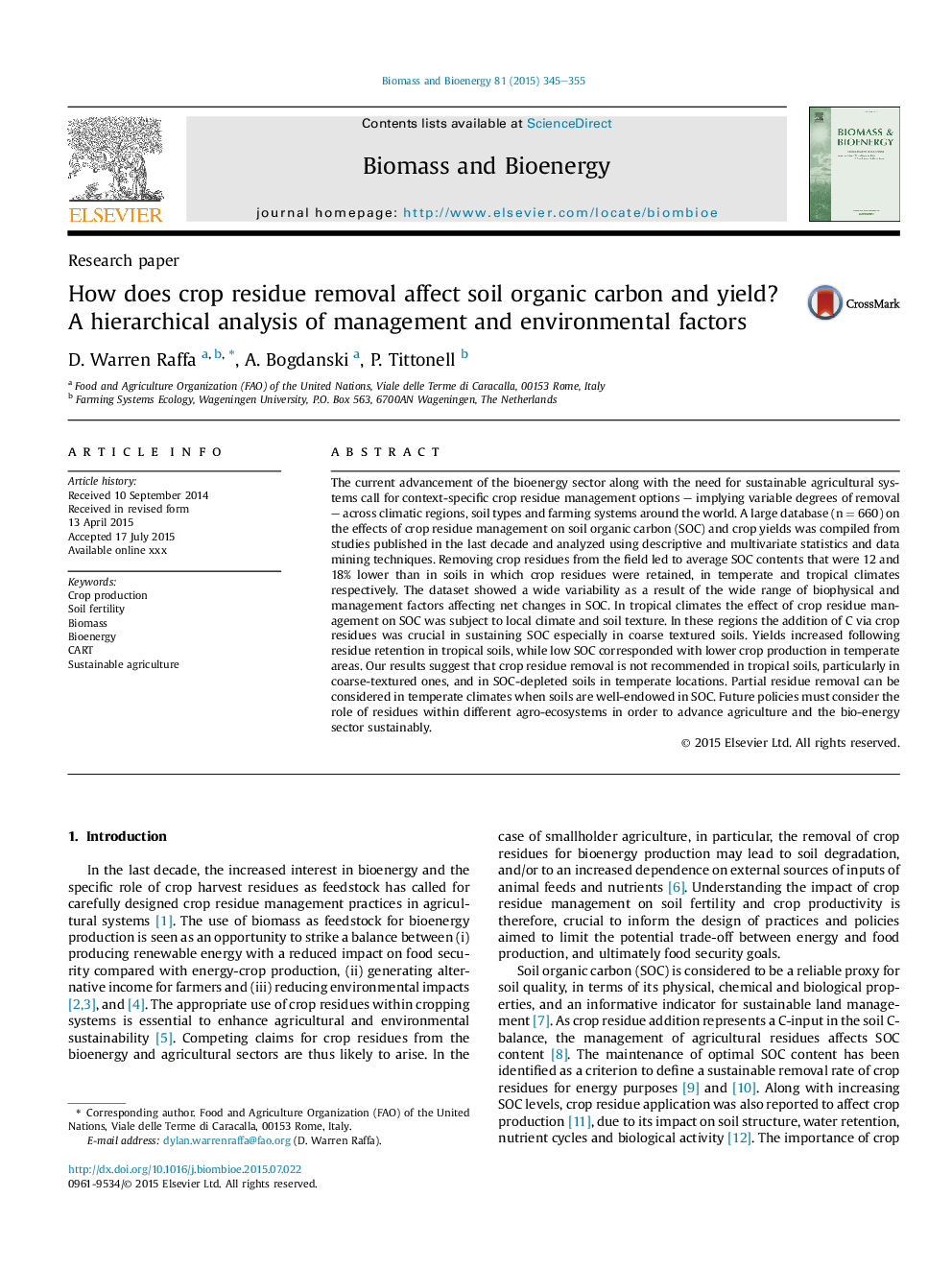| کد مقاله | کد نشریه | سال انتشار | مقاله انگلیسی | نسخه تمام متن |
|---|---|---|---|---|
| 7063823 | 1459812 | 2015 | 11 صفحه PDF | دانلود رایگان |
عنوان انگلیسی مقاله ISI
How does crop residue removal affect soil organic carbon and yield? A hierarchical analysis of management and environmental factors
ترجمه فارسی عنوان
چگونه حذف باقیمانده محصول باعث کاهش کربن آلی و عملکرد محصول می شود؟ تجزیه و تحلیل سلسله مراتبی از مدیریت و عوامل محیطی
دانلود مقاله + سفارش ترجمه
دانلود مقاله ISI انگلیسی
رایگان برای ایرانیان
کلمات کلیدی
تولید محصولات کشاورزی، باروری خاک، زیست توده، بیو انرژی، کارت، کشاورزی پایدار،
موضوعات مرتبط
مهندسی و علوم پایه
مهندسی شیمی
تکنولوژی و شیمی فرآیندی
چکیده انگلیسی
The current advancement of the bioenergy sector along with the need for sustainable agricultural systems call for context-specific crop residue management options - implying variable degrees of removal - across climatic regions, soil types and farming systems around the world. A large database (n = 660) on the effects of crop residue management on soil organic carbon (SOC) and crop yields was compiled from studies published in the last decade and analyzed using descriptive and multivariate statistics and data mining techniques. Removing crop residues from the field led to average SOC contents that were 12 and 18% lower than in soils in which crop residues were retained, in temperate and tropical climates respectively. The dataset showed a wide variability as a result of the wide range of biophysical and management factors affecting net changes in SOC. In tropical climates the effect of crop residue management on SOC was subject to local climate and soil texture. In these regions the addition of C via crop residues was crucial in sustaining SOC especially in coarse textured soils. Yields increased following residue retention in tropical soils, while low SOC corresponded with lower crop production in temperate areas. Our results suggest that crop residue removal is not recommended in tropical soils, particularly in coarse-textured ones, and in SOC-depleted soils in temperate locations. Partial residue removal can be considered in temperate climates when soils are well-endowed in SOC. Future policies must consider the role of residues within different agro-ecosystems in order to advance agriculture and the bio-energy sector sustainably.
ناشر
Database: Elsevier - ScienceDirect (ساینس دایرکت)
Journal: Biomass and Bioenergy - Volume 81, October 2015, Pages 345-355
Journal: Biomass and Bioenergy - Volume 81, October 2015, Pages 345-355
نویسندگان
D. Warren Raffa, A. Bogdanski, P. Tittonell,
